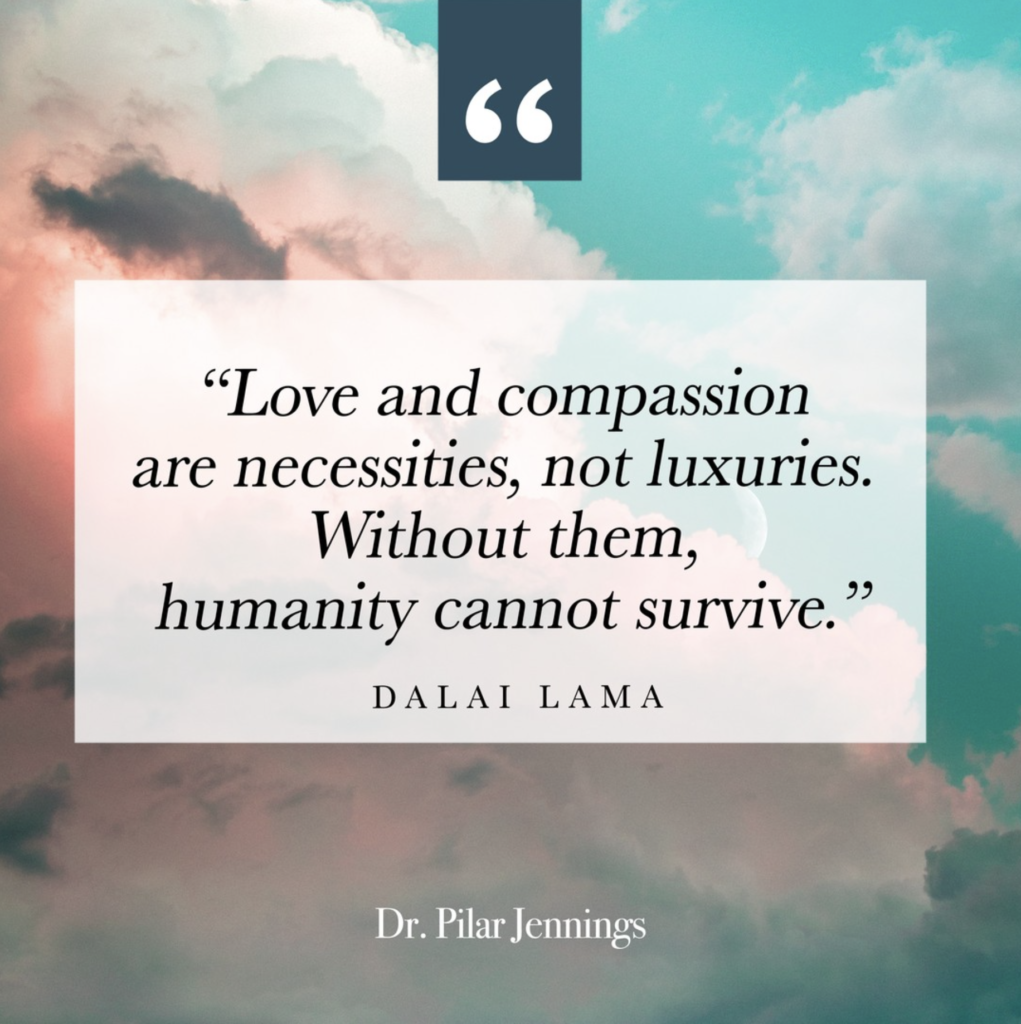If you have a relational history that has reinforced a tendency toward self-criticism and high levels of shame, fear of compassion will likely result. You might fear compassion from others, for others, and most especially, for yourself.
It sounds counter-intuitive – who wouldn’t want more compassion? But compassion makes us feel vulnerable – when we care about suffering, we’re in a less guarded state of mind. And if we care about our own suffering, it requires some sense that the suffering is not an indication of failure or shameful deficiency.
It’s worth taking some time to explore any struggles with compassion you’ve noticed. The #psychologicalbenefits are immense. Feeling compassion restores our relational nature to self and other. After all, we are wired to connect – it’s what the nervous system and psyche both seek. When we’re feeling more compassion toward others, it reinforces feelings of closeness and safety. It nurtures self-esteem and trust in our capacity to weather hardship. It’s a powerful antidote to feelings of isolation.
The results of compassion and #selfcompassion are beneficial to everyday life. It will put us in touch with a sense of internal safety – that caring part we can reliably access (even when others may disappoint or cause harm). We are also more likely to seek out this capacity in others (via projection and self-care). This often results in feelings of connection and overtime, a capacity to nurture meaningful and abiding relationships. Ultimately, we will find ourselves more fully situated in the human family.
Love and compassion are necessities, not luxuries.
